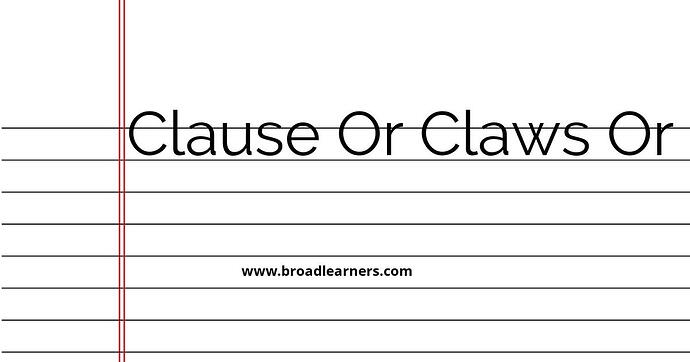'Clause', 'claws', and 'clause' are commonly confused words in English grammar. Understanding the difference between 'clause', 'claws', and 'clause' is important to use them correctly in written and spoken English.
'Clause' is a grammatical term that refers to a group of words that contains a subject and a predicate. It is used to form sentences and express a complete thought.
'Claws' is a noun that refers to the sharp, curved nails found on the feet or paws of certain animals, such as cats or birds of prey.
'Clause' is a misspelling of the word 'claws' and does not have a separate meaning.
Let's take a closer look at the meanings and usage of 'clause', 'claws', and 'clause'.
| 'Clause' | 'Claws' | 'Clause' |
|---|---|---|
| The word 'clause' is a grammatical term that refers to a group of words that contains a subject and a predicate. | The word 'claws' is a noun that refers to the sharp, curved nails found on the feet or paws of certain animals. | 'Clause' is a misspelling of the word 'claws' and does not have a separate meaning. |
|
|
|
To remember the difference between 'clause', 'claws', and 'clause', it is important to understand their individual meanings and usage. 'Clause' is a grammatical term, 'claws' refers to sharp nails, and 'clause' is a misspelling.
Here are some examples of correct usage:
- The sentence contains an independent clause and a dependent clause.
- The cat's claws were sharp and dangerous.
Remembering the correct usage of 'clause' and 'claws' will improve your grammar and communication skills.
